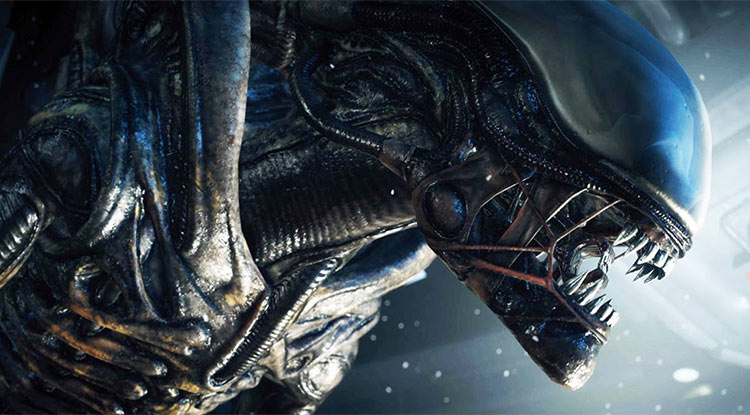“The process of delving into the black abyss is to me the keenest form of fascination.” – Howard Phillip Lovecraft
 On June 8, 2012, Ridley Scott is delving into the black abyss, and he’s taking audiences with him. Returning to the franchise that popularized cosmic horror in film, Scott’s Alien spinoff, Prometheus, is being buzzed about as one of the cinematic events of the year.
On June 8, 2012, Ridley Scott is delving into the black abyss, and he’s taking audiences with him. Returning to the franchise that popularized cosmic horror in film, Scott’s Alien spinoff, Prometheus, is being buzzed about as one of the cinematic events of the year.
Weeks ago, things reached a fever pitch as fans were treated to a viral video that linked the two properties closely together through one character – Peter Weyland of Weyland-Yutani, the devious “Company” from Alien. In the video, the character (played by Guy Pearce) gives an impassioned speech regarding the progress of technology throughout human history, from the discovery of fire (as stolen by the titan Prometheus) up to the development of androids that will move through society undistinguished from humans. This all culminates in his inevitable conclusion that “We are the Gods now.”
(Prometheus Viral Video)
Judging from this monologue, Prometheus seems primed to retell the titular myth (see the video for Weyland’s grisly version) using the extraterrestrial “gods” of the Alien universe in place of the Titans.
Though Ridley Scott and screenwriters Damon Lindelof and Jon Spaihts will likely receive accolades from critics for applying Greek myth to the Alien universe, the truth is that the idea was always there, if in a slightly different form, in Dan O’Bannon and Ronald Shusett’s original draft of Alien. Alien is, after all, about a space crew duped into absconding with a biological weapon from the remains of a higher species. Yet, where Prometheus is paying homage to Greek myth, Alien was paying homage to a much more modern mythos – that of 20th century horror writer Howard Phillips Lovecraft.
Our Earth is not our own…





Stay Connected